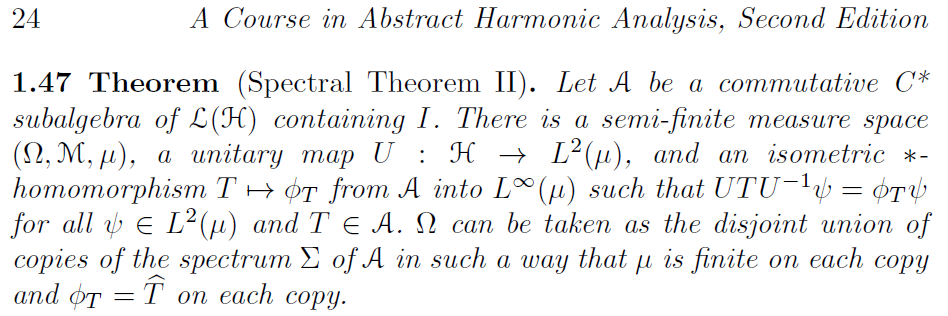Let $A_1$ and $A_2$ be two commuting self-adjoint (or normal) operators on an infinite-dimensional complex Hilbert space $E$, then there exists a measure space $(X,\mathcal{E},\mu)$, two functions $\varphi_1,\varphi_2\in L^\infty(\mu)$ and a unitary operator $U:E\longrightarrow L^2(\mu)$, such that each $A_k$ is unitarily equivalent to multiplication by $\varphi_k$, $k=1,2$. i.e. $$UA_kU^*f=\varphi_kf,\;\forall f\in E,\,k=1,2.$$
It is well known that if $E$ is separable then $\mu$ can be taken $\sigma$-finite.
Now if $E$ is assumed to be not necessarily separable, according to this answer, $\mu$ can be taken localizable.
Does anyone have an exact reference?
Thanks.


